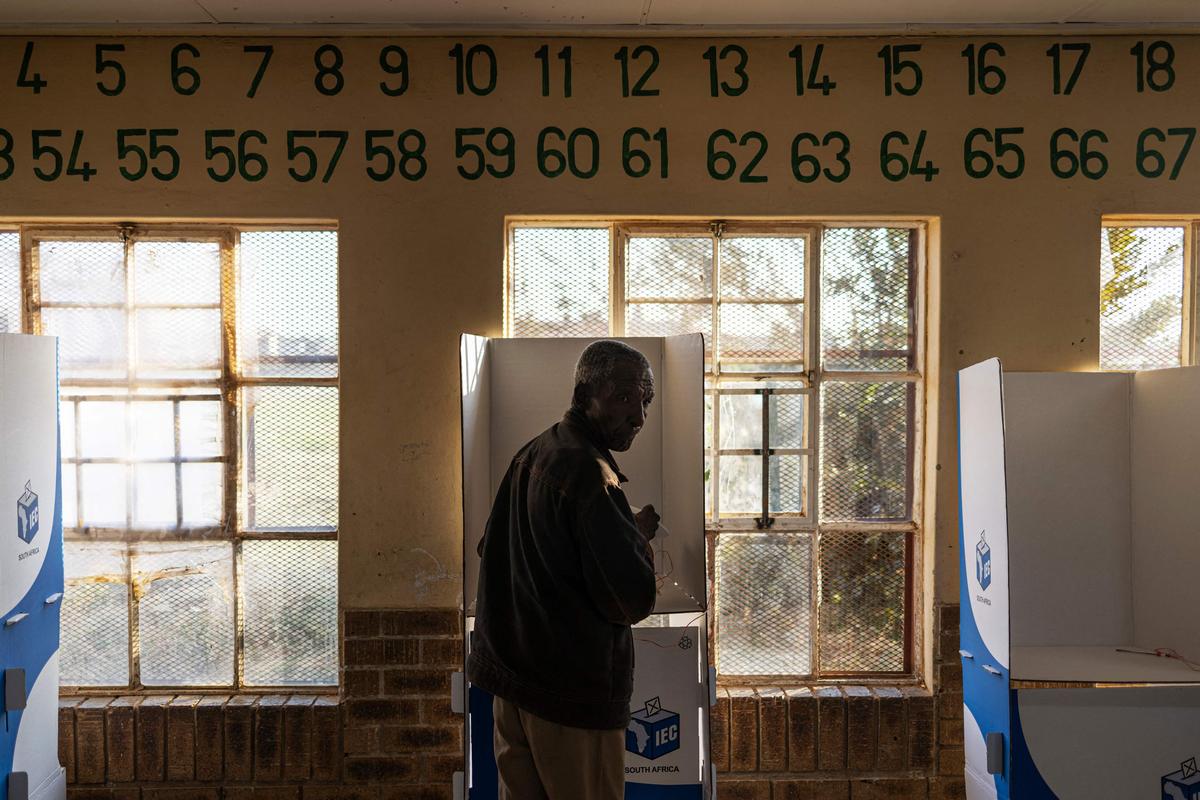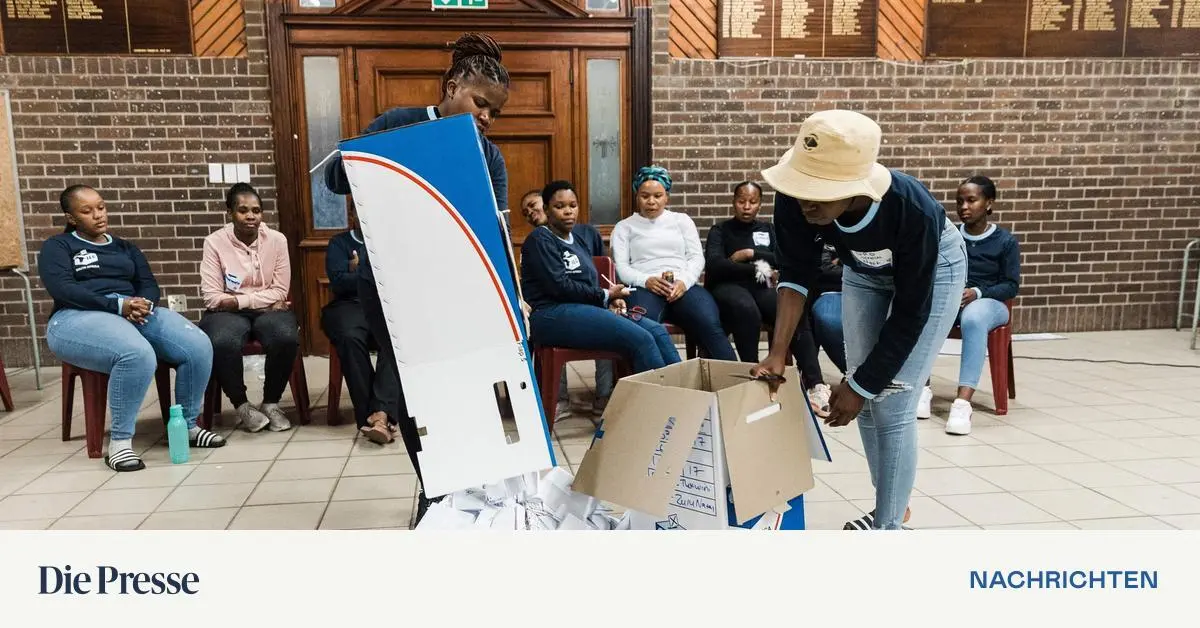After 35% of the votes were counted, the party of national hero Mandela received only 42.3%. It would be a historic turning point if the ANC was forced into a coalition. Left-wing extremists are crucial.
After the parliamentary elections that took place in South Africa on Thursday, according to partial results, it became clear that the African National Congress Party, which has ruled the country alone for 30 years, will lose its absolute majority. With 35 percent of the votes counted, the party of national hero Nelson Mandela received 42.3 percent, according to the Electoral Commission, a clear loss compared to 57 percent in 2019. The largest opposition party, the Democratic Alliance, received nearly 42.3 percent. 25 percent.
According to the partial results, the third strongest force was the radical leftist Economic Freedom Fighters (EFF) party led by former ANC official Julius Malema with nine percent, closely followed by the New MK party led by the former president and ANC president. Jacob Zuma with 9%. Eight percent.
Official results not until the end of the week
The Electoral Commission explained that the first partial results did not yet include the results of the major cities, especially Johannesburg and Durban. Official results are not expected until the end of the week. However, the partial results confirm the expectations of experts and opinion polls in the past few weeks.
Political science professor Daniel Silk said the ANC had suffered a “huge blow”. “It is a shock to the ANC regime, and will ultimately be a shock to the regime of ordinary South Africans who have only known ANC rule since 1994.” The election “redraws South Africa's political borders and creates a certain level of uncertainty.” .” , he added.
President Cyril Ramaphosa is concerned about the absolute majority. Reuters/Alastair Russell
President Ramaphosa will have to look for coalition partners
If President Cyril Ramaphosa's party receives less than 50% of the votes, he will have to search for coalition partners in order to be re-elected and tasked with forming the government. This will be a historic turning point in the history of the country, which witnessed its first free democratic elections in 1994.
The ANC remains respected for its leadership role in overcoming apartheid and white minority rule. His social and economic policies aimed at supporting the black majority population have helped millions of black families emerge from poverty.
Corruption scandals and high unemployment rates
However, a series of corruption scandals in the ANC leadership, high unemployment, a weak economy, high crime rates and inequality, as well as persistent power outages, mean that many South Africans are now turning away from the ruling party in disillusionment.
The prospect of the EFF's involvement in government raises tension, especially in business circles. The EFF's electoral platform includes the nationalization of the country's gold and platinum mines. In addition, white farmers had to be expropriated in order for their land to be distributed to blacks. Malema, who was expelled from the ANC a decade ago, classifies the EFF as Marxist. Its supporters are recruited primarily from unemployed black teenagers and young adults.
The promised prosperity did not materialize
It is also clear that the Front benefited from the disillusionment of many South Africans with the ANC. The African National Congress liberated the country from apartheid 30 years ago. But the prosperity promised to large segments of the population has not yet been achieved. The wealthy – both black and white – were able to increase their wealth during this period. By contrast, a third of South Africans, including many black university-educated voters, are unemployed. “The EFF points out that we have not solved the race problem in this country,” said Stephen Freedman, director of the South African Center for the Study of Democracy.
Exhibitionist Malema is also controversial
Malema is also not without controversy. Critics accuse him of a penchant for flashy cars, gold watches, champagne and luxury villas in green suburbs. To pay off his $1 million tax debt, he sold one of these villas, which had its own cinema and smoking room. He is also accused of corruption, which he denies.
About 27.6 million registered voters were called on Wednesday to vote on the makeup of the 400-seat parliament, which will then determine the new president in June.

About 27.6 million registered voters were called to cast their ballots in the elections that took place in South Africa on Wednesday. APA/AFP/Michel Spatari
In many voting areas, people stood in lines for hours, and in some cases, polling stations were forced to stay open longer than planned. According to the Independent Electoral Commission, this was due to high voter turnout and the fact that many people went to vote late, especially in cities. Participation will be “much higher” than 66 percent in 2019. (APA/AFP)

“Food practitioner. Bacon guru. Infuriatingly humble zombie enthusiast. Total student.”







More Stories
KaDeWe stops selling meat and sausages
Another earthquake near the giant Naples volcano
Trump wants to block Harris' access to donations